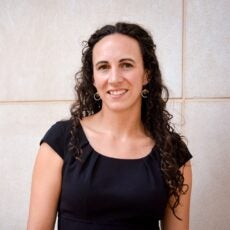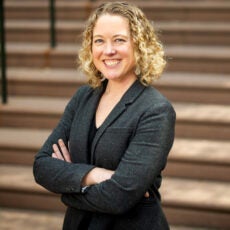Focus on Research

Greenhouse Gas Removal
Led by Jennifer Wilcox, the Clean Energy Conversions Lab anchors the Kleinman Center’s work on greenhouse gas removal—one of our three core research themes. As the world falls short of essential climate targets, carbon dioxide removal (CDR) is playing an increasingly critical role in achieving net-zero emissions by mid-century, alongside energy efficiency and deep decarbonization. Yet, CDR remains mired in debate, shaped by moral hazard concerns and divergent risk perceptions. The Kleinman Center’s integrated research approach helps clarify this complex landscape, advancing understanding of CDR technologies, policy instruments, and legal structures that can ensure its responsible and equitable deployment.
U.S. CCS Ladder for Industrial Decarbonization
CCS has long been scrutinized for enabling fossil fuels, but in some industrial sectors that produce CO2 as a byproduct, CCS may be one of the only options for decarbonization today. Here’s a look at where CCS should be prioritized as a decarbonization strategy now—and for some sectors tomorrow.

Roads to Removal
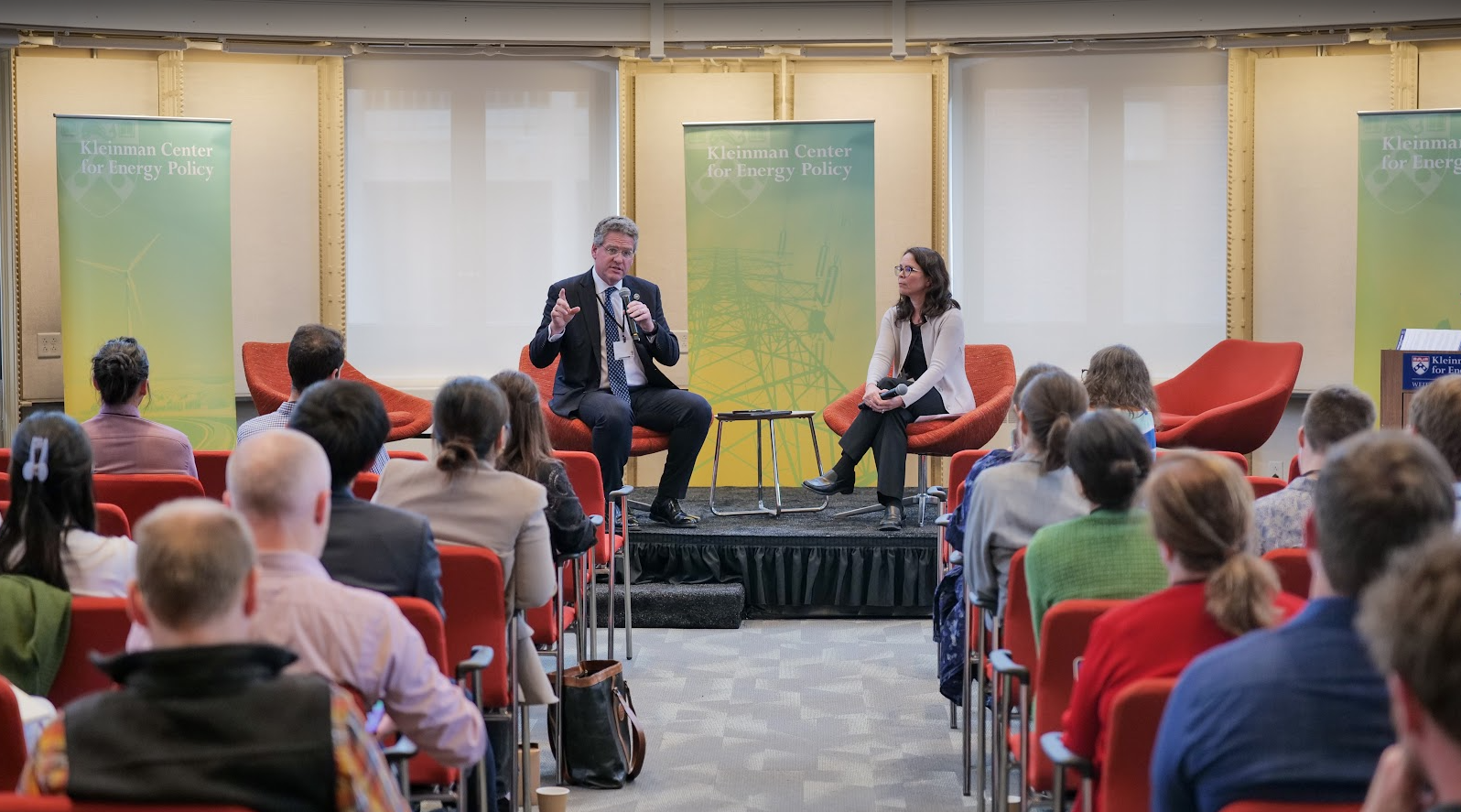
Roads to Removal. The Kleinman Center hosted a one-day symposium focused on the Roads to Removal report, a national-scale Department of Energy–commissioned analysis outlining carbon dioxide removal (CDR) needs to reach net-zero emissions in the U.S. by 2050. Bringing together University of Pennsylvania scholars, Department of Energy officials, Lawrence Livermore National Laboratory scientists, and regional leaders, the event spotlighted the economic, environmental, and workforce opportunities of localized CDR strategies—particularly those tailored to Pennsylvania’s unique landscape.
Listen to the Recordings
Course Highlight
Clean Energy Technology Deployment to Achieve Net Zero

Jennifer Wilcox
Presidential Distinguished ProfessorJen Wilcox is Presidential Distinguished Professor of Chemical Engineering and Energy Policy. Her research expertise is in carbon capture and sequestration technologies, in order to minimize the negative impacts of fossil fuels.
Institutions and Governance
Energy transitions don’t happen in a vacuum—they are shaped and steered by the institutions that govern them. Under the leadership of Shelley Welton, the Kleinman Center explores how regulatory structures, governance processes, and institutional design influence the pace and equity of the energy transition. From utility regulation and regional coordination to ownership models and public participation, our research sheds light on how institutional choices shape energy outcomes across local, state, and federal levels.
Energy Policy Now Podcast
Byzantine governance structures and vested interests are slowing the greening of the U.S. electrical grid. Shelley Welton and Joshua Macey discuss paths forward on the Energy Policy Now Podcast.
Democracy in Power
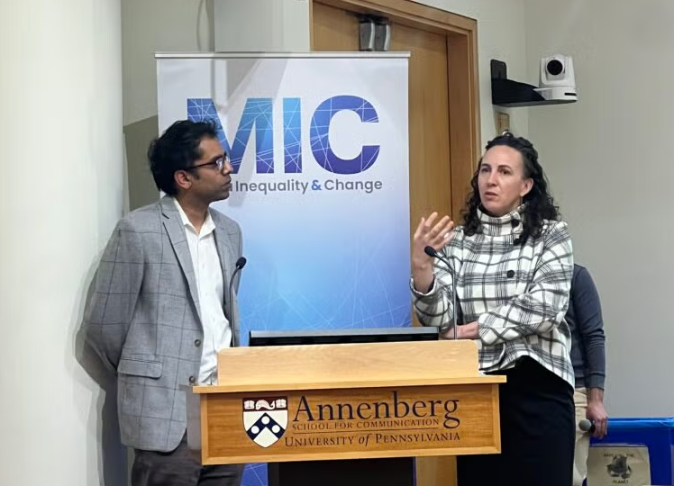
The Media, Inequality & Change Center, the Penn Program on Regulation, and the Kleinman Center for Energy Policy hosted a compelling talk with Sandeep Vaheesan, author of Democracy in Power: A History of Electrification in the United States. Vaheesan explored how the New Deal transformed the U.S. power sector, introducing public ownership and rural cooperatives that challenged private financial control. Tracing the political and regulatory history of electrification, he highlighted the enduring significance of public utilities in shaping a democratic and equitable energy future. The event offered critical insights into the past and a powerful vision for decarbonization rooted in public accountability
Course Highlight
Introduction to Energy Policy
Students gain an advanced introduction to the design and delivery of energy policy across local, state, federal, and international contexts. Through case studies and discussion, the course explores the institutions, legal frameworks, technologies, and markets that shape policy decisions, with a particular emphasis on strategies driving the global energy transition.
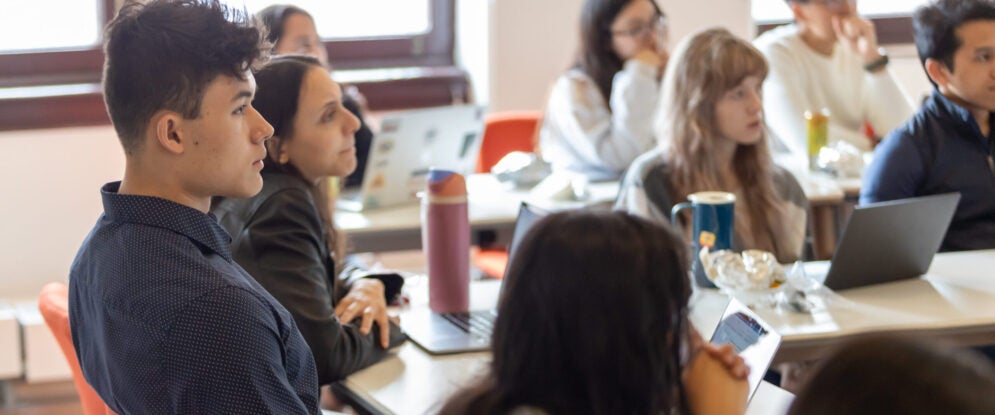
Shelley Welton
Presidential Distinguished ProfessorShelley Welton is Presidential Distinguished Professor of Law and Energy Policy with the Kleinman Center and Penn Carey Law. Her research focuses on how climate change is transforming energy and environmental law and governance.
Policy Design
Driving meaningful climate action requires bold, well-crafted policies that challenge the status quo and accelerate the clean energy transition. Led by Sanya Carley, the Kleinman Center’s Policy Design theme focuses on developing innovative, evidence-based energy policies informed by a deep understanding of both legal frameworks and technological realities. Our research equips decision-makers with actionable insights to promote renewable energy adoption, improve energy efficiency, and support low-carbon innovation at the local, national, and global levels.
Tracking the Pernicious Challenge of Utility Disconnections
The Energy Justice Lab focuses on equity in the energy transition, including access to household energy services. One dimension of this work is the Utility Disconnections Dashboard, which makes information about utility shut-offs more accessible and understandable. Practitioners, policymakers, and scholars use the dashboard to better understand utility disconnections and to advocate for stronger protections.

Translating Energy System Decarbonization Research to External Audiences
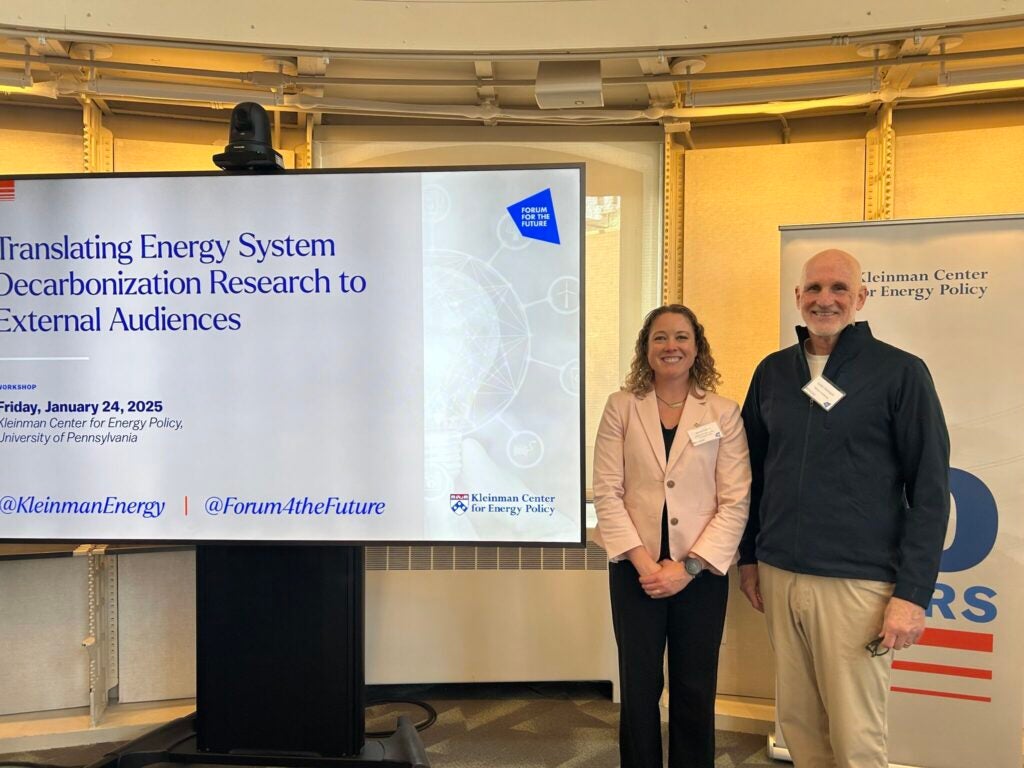
As part of a national series supported by the Alfred P. Sloan Foundation, the Kleinman Center hosted a workshop focused on improving how researchers communicate energy system decarbonization to broader audiences. The event brought together scholars, policymakers, industry representatives, media, and community members to explore effective strategies for translating complex research into accessible, actionable insights—advancing the public impact of energy policy work in Philadelphia and beyond.
Course Highlight
Energy Justice

Sanya Carley
Mark Alan Hughes Faculty DirectorSanya Carley is the Mark Alan Hughes Faculty Director of the Kleinman Center and Presidential Distinguished Professor of Energy Policy and City Planning at the Stuart Weitzman School of Design.

